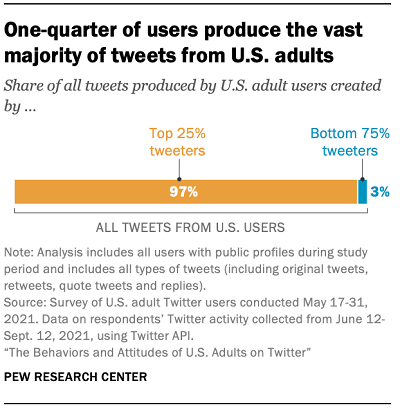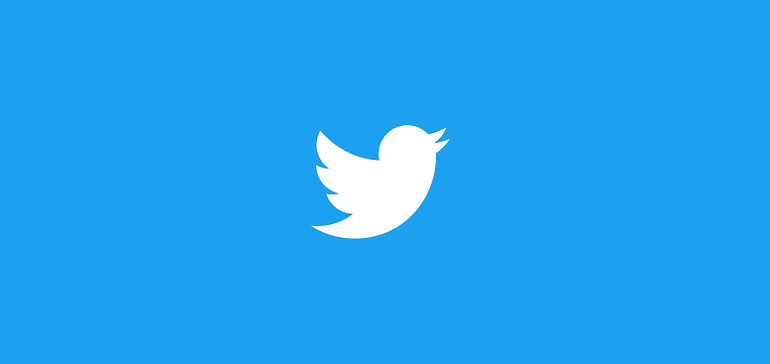It’s been a relatively quiet few days in Elon town, as the new ‘Chief Twit’ re-assesses his next moves at the app, and considers how he can get more people more aligned to the platform, in order to build on growing interest.
Musk has repeatedly noted that Twitter usage has been at record highs since he took over at the platform, with more people seemingly tuning in to see what Elon might do next at the app. But now, it does appear that some of that momentum may be slowing, while questions are also being raised as to how much of a solution Elon’s $8 verification program will actually end up being, in terms of revenue intake.
On the first point, Elon is now apparently exploring why people don’t tweet, and how to better motivate participation from lurkers.
I meet so many people who read twitter every day, but almost never tweet.
If I may beg your indulgence, please add your voice to the public dialogue!
— Elon Musk (@elonmusk) December 1, 2022
That’s a significant concern – according to research conducted last year, around 25% of Twitter users in the US produce around 97% of all tweets.

Most Twitter users simply don’t tweet, which is a problem for Elon’s $8 verification strategy, because if most people aren’t actively engaging, why would they care about having a blue tick, or getting better reach for their replies, which is another perk of Elon’s verification plan?
Musk’s looking to address this, by potentially shifting the indirect incentives of tweet metrics:
Twitter will start showing view count for all tweets, just as view count is shown for all videos. The system is far more alive than it would seem.
— Elon Musk (@elonmusk) December 1, 2022
Musk says that people’s tweets are actually being seen, in general, by a lot more people than they think, and maybe, if Twitter can start highlighting this, in addition to Like and retweet counts, that could be a means to boost engagement.
But I don’t know.
Do you really want to know that a thousand people saw your tweet and not a single one of them felt compelled to engage with it in any way? I mean, sure, it’s interesting to know that people are actually seeing what you have to say, but if you’re not getting Likes, it could potentially be even more disengaging than not having that stat up front.
But Musk, of course, is an attention magnet, so maybe to him, it makes more sense that people would want to see this.
Will that improve tweet engagement? Probably not, but incentivizing participation is difficult, and there are no great answers for Twitter on this.
So he may as well try.
Which leads to the next Twitter note – in a new interview with Fast Company, a former Twitter staffer has said that most of Musk’s Twitter 2.0 plans won’t work, based on his knowledge of past market research they conducted at the app.
“All these ideas you’re seeing thrown out, of subscription models and verification and paying creators, we’ve already explored at least 75% of the ideas I’ve seen coming out from Elon and Jason Calcanis. We had extensive research on these topics. And a lot of people weren’t interested in them.”
Now, that doesn’t mean that they definitively won’t work, as sometimes people will say one thing and do another when the option is there.
But then again:
“[The former Twitter staffer] recalls that only around 10% of users surveyed said they were interested in Twitter Blue’s offering. They also tested different pricing levels, finding – unsurprisingly – that as the price went up, the interest rate went down. ‘It was pretty clear through this test that Twitter Blue wasn’t going to be a big moneymaker for us,’ the former employee says.”
That’s reflected in all of the stats for all of the various subscription offerings across the social media sphere – Twitter Blue peaked at 100k subscribers, or 0.04% of Twitter users, only 0.41% of Snapchat users pay for Snapchat+, a fraction of LinkedIn users pay for Premium.
Musk has thus far seemed convinced that everyone will simply pay, because they’ll want a blue tick. But increasingly, with every delayed roll-out of the updated verification plan, it does seem like there’s a level of realization setting in that this won’t be the savior he may have hoped.
But of course, his supporters will pay.
Every time you dare to question the genius of Elon Musk, you get a range of commentators cropping up to inform you that you’re wrong, that you don’t understand Elon’s vision, that you’ve never created a billion-dollar business, so how could you possibly have the gall to query the great man?
And they’re right. Musk has, one way or another, overseen huge success at some now massive companies, which are operating in difficult niches. And I suspect, one way or another, that Twitter too will eventually get onto a more profitable path – I can’t imagine somebody just sinking $44 billion to see the company collapse.
But at the same time, Musk himself has said that Twitter’s going to end up trying stupid things, as he goes about essentially learning what will and won’t work.
And with each of those experiments having impacts for users and advertisers, it is important to question such, and to highlight the potential challenges in take-up.
So a proviso – this isn’t about ‘free speech’ or political leanings. The observations of Elon’s Twitter reformation are based on his comments and actions at the app, and what they may mean for how it works, not ideology or opposing some perceived cultural perspective.
So miss me with that rubbish.
Even more important on this front, Twitter hasn’t changed its approach to moderation, so for all of Elon’s talk about free speech, he hasn’t actually done anything to better enable such as yet.
Sure, he may be letting banned users back on the app, which could stoke advertiser concerns, and Twitter has ended its COVID misinformation policy, which could be related to a more fundamental change in its approach. But just this week, in an appeal to ad partners, Twitter re-stated that its content rules have not changed.
Yes, Elon is keen to toot his free speech horn when it suits him, in a bid to muster more support. But even as a potential factor, he hasn’t changed anything on this front as yet, so it’s not functionally an element of critique around his actions.
Maybe it will be, but only from the perspective of how it impacts usage, and ad placement. Fundamentally, Elon can do whatever he likes, but he will need to abide by EU and App Store rules, so there will always be some restriction on what he can and cannot change on this front.
But as a political statement, it’s up to him and his team what rules they may want to implement. That will potentially come with a level of risk, but again, that’s their decision.



